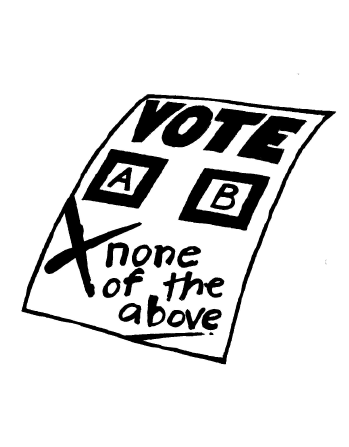Art O’Leary, the chief executive of the Independent Electoral Commission has just publicly admitted that the Irish Electoral Register could be inflated by as much as 500,000 names through duplication or through not removing people who have died. Thus, he warned that the disappointing official turnout of 59.7 per cent in the recent national election was ‘a very blunt measure by which to judge the performance...or the engagement of people generally with democracy’. More worryingly, Mr O’Leary did not mention those who had emigrated out of the state (such as yours truly) but are still on the register. He also noted that no-one should expect it to be fixed any time soon, adding helpfully ‘I don't know if that figure is correct or not, but it sounds to me as if it's about right’. When challenged that voter fraud was now more likely as a result, Mr O’Leary’s conclusion was hardly a resounding reassurance, ‘if it happens then it is probably immaterial, I suspect. But like I said, we have no evidence of that.[1] In short, Art doesn’t know and is guessing, but it really doesn’t matter too much, so don’t hold him to any of it, please.
Read MoreIt was 2020, during the height of the ‘Black Lives Matter’ protests when TV host, Trevor Noah, finished his ‘Daily Show’ comedy programme with a clip from a city whose name I forget. A local store (a Target supermarket I think) had been deliberately set on fire and a young black woman was interviewed nearby. She stridently defended the protesters’ actions saying (effectively) that it was the expression of their anger and a clamour for change by the local Black community. Noah, who is an upper-middle class, South African Black comedian, uncharacteristically signed off his segment without challenging her spiel, instead sombrely asking who were we to argue the Black Lives Matter protestor’s point of view.
Read MoreThe noise was sudden and loud, a metallic thud, followed by the screech of breaks and a second dull thump, then silence followed by shouts and excited cries. I jumped up from the meeting table and ran outside the door of our office, which exited onto the junction just below the Catholic church in Castlebar. While I sprinted down Tucker St to my jeep, my brain was inexplicably sending me images of my father and sister standing shocked in the road. I came to a small car, with the driver sobbing in gasps, wedged sideways in the street. She had failed to yield to the right-of-way at the junction and was struck by an oncoming vehicle which sent her own car, pummelling down the narrow street, miraculously missing all the parked cars, except mine and which my girlfriend was sitting in. Once checking everyone was ok, I then turned to look up to the other car and recognised it immediately as my father’s. Both he and my sister, who he had been taking to the hospital for a check-up, were shaken but okay. Later, the attending Garda (police officer) made several attempts to understand how the vehicles owned by me and my father were the only ones damaged by the errant car — especially as neither of us knew the other was in Castlebar that day. ‘It’s too much of a coincidence’ he repeated ‘what are the chances, hah?’, perhaps thinking some sort of elaborate insurance fraud on our part. But it wasn’t. Coincidences do happen even, even as our brains ascribe meaning to otherwise random events, which seem to be unavoidably connected.
Read More


